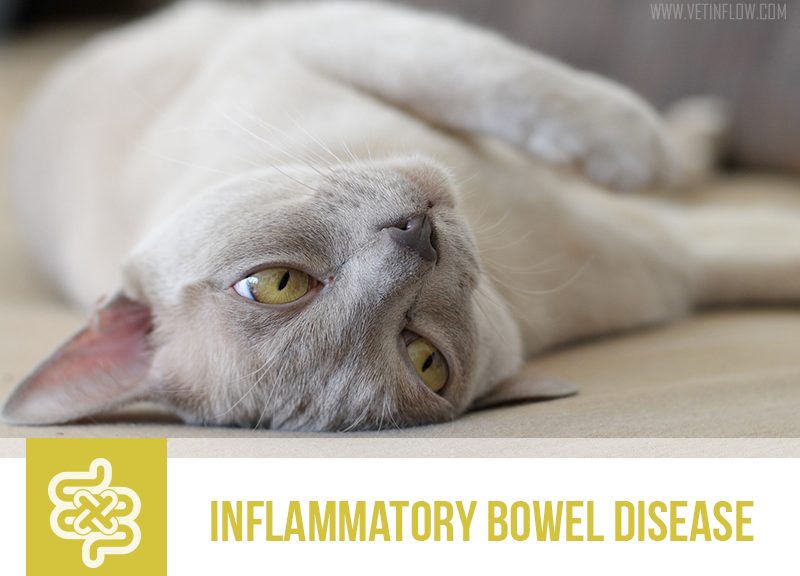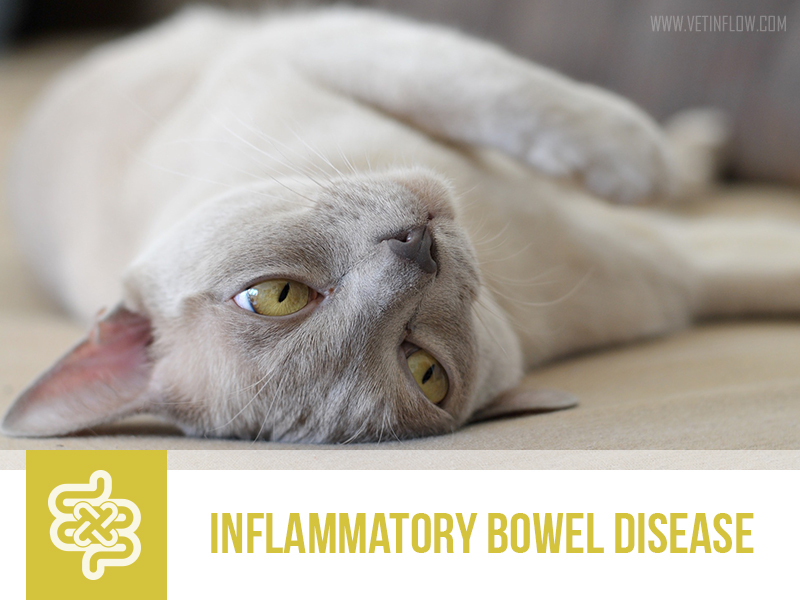Inflammatory Bowel Disease in Cats
It is very important for cat owners to be aware of Inflammatory Bowel Disease (IBD), as this is not an unusual condition and is frequently related to recurrent vomiting in cats.
IBD is a persistent or chronic inflammation of the lining of the stomach, small and large intestine that can be caused by several gastrointestinal diseases. The triggers for this reaction can be parasitic infections, bacterial infections or even food allergies. Over time, inflammatory cells invade the intestinal wall, increasing the wall’s thickness, damaging its structure, and affecting its ability to function properly during the digestive process.
In many cases, the reason why this happens is unknown. Recent studies show several factors such as the animal’s genetics, immune system, dietary antigens and even their intestinal microfora might be involved in this exaggerated inflammatory response.
Although this disease is usually seen in middle-aged and older cats, cats of all ages can have IBD. Affected cats often present with recurrent vomiting and/or diarrhoea, decreased appetite and weight loss. Some cats may present with all of these signs, while others may show only one of them or have no visible clinical signs at all.
Due to the domestic cats’ particular anatomy, it’s not uncommon for cats with IBD to also show signs of inflammation in their pancreas and liver. Diagnosing this condition requires some degree of investigation since the typical clinical signs are very unspecific and can be caused by a wide range of other conditions.
Unfortunately, there is no cure for IBD, but there are several options to manage this disease, minimise the clinical signs and provide a comfortable and healthy life for the affected cats. These options include adjustments in their diet and medications such as antibiotics, anti-inflammatory and immunosuppressive drugs.
It is really worth taking your cat to the vet if you notice your pet is showing sporadic vomiting or any of the clinical signs mentioned above. Early diagnosis and adequate treatment will greatly improve your cat’s quality of life and bring you much needed peace of mind.
Would you like to know more about cats? Check our Feline Courses:

